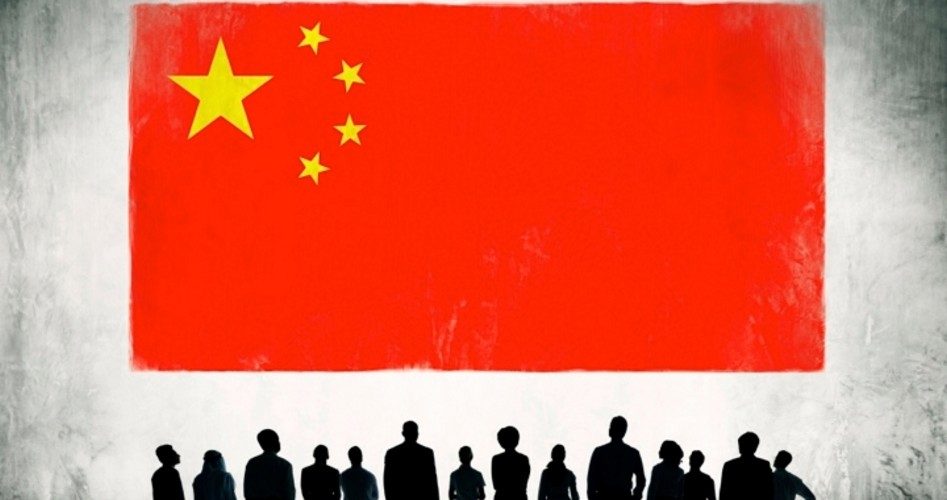
Podcast: Play in new window | Download ()
Subscribe: Android | RSS | More
Two days before “Phase One” of a U.S.-China trade deal is to be signed, Treasury Secretary Steven Mnuchin announced that his department was removing China from its list of “currency manipulators.” This was a “condition precedent” in order to get the deal done. It was a victory for China and an indicator that much more work needs to be done in “Phase Two” and future additional agreements to rein in China’s hunger and thirst for American capital and technology, often acquired through deceit and manipulation. Its war on the West won’t be stymied in the slightest even after “Phase One” is signed.
Mnuchin tried to make the deal sound attractive: “The Treasury Department has helped secure a significant Phase One agreement with China that will lead to greater economic growth and opportunity for American workers and businesses. China has made enforceable commitments to refrain from competitive devaluation [of its currency, the yuan], while promoting transparency and accountability.”
The underlying assumption is false: that deals and agreements and treaties and the like with communists can be enforced.
It also means that China will continue its war on the West, seeking to become the world’s largest economy by 2050 and thus able to dictate its terms to the rest of the world.
Senator Chuck Schumer (D-N.Y.) was right for once when he declared, “China is a currency manipulator — that is a fact.” He was slightly off the beam when he continued, “President Trump would rather cave to President Xi than stay tough on China.”
Trump is the ultimate pragmatist. He is in full reelection mode and knows that the impeachment fantasy engaged in by Democrats will soon fade from the public memory but that the war with China will remain. Under Phase One, China has agreed to purchase some $200 billion worth of U.S. goods over the next two years (with some tariffs to be reduced and others planned not being implemented), but first the communist leaders demanded that their country be removed from the administration’s “currency manipulator” list.
Mnuchin’s Treasury Department was correct back in August when it placed China on that list: “In recent days China has taken concrete steps to devalue its currency … the context of these actions … confirm that the purpose of China’s currency devaluation is to gain unfair competitive advantage [over the U.S.] in international trade.”
A look at a chart of the Chinese yuan versus the dollar (here) shows clearly how China reduced the value of its currency prior to being placed on the list. It was reducing the value of its currency in anticipation of the 10-percent tariffs being applied to another $300 billion worth of Chinese exports starting September 1. This manipulation would neutralize the impact of those tariffs on Chinese manufacturers.
By buying American dollars on the world markets, China has been flooding the globe with the yuan. In April 2018, one U.S. dollar could buy 6.25 yuan. By the end of August 2019, one U.S. dollar could buy more than seven. That 12-percent devaluation of the yuan made American goods look more expensive while making Chinese goods look even cheaper. China’s weaker currency increases the cost of U.S. exports, making them less attractive to consumers in China while lowering the cost of China’s exports, making them more attractive than American-made goods. The net effect has been, as Trump has said repeatedly, the loss of millions of American jobs to China.
Currency manipulation is just one of several tools the communists running China have successfully used to obtain American capital and steal American technology.
Thanks to authors such as Michael Pillsbury (The Hundred-Year Marathon: China’s Secret Strategy to Replace America as the Global Superpower), Jonathan Ward (China’s Vision of Victory), and others, China’s purposes and tactics have been exposed.
Even after the Phase One deal is signed, those purposes and tactics will remain in place. As Tom Rogan, a foreign policy analyst, wrote for the Washington Examiner, “Beijing will do everything possible to avoid formal constraints on its more destructive economic behavior. On intellectual property, China will continue its global intelligence campaign to steal the most advanced new hardware and software. That effort won’t be sacrificed, as that would mean sacrificing Xi’s ultimate ambition of a Chinacentric international economic and political order.”
An Ivy League graduate and former investment advisor, Bob is a regular contributor to The New American, writing primarily on economics and politics. He can be reached at [email protected].
Related articles:
More and More Companies Moving Out of China


